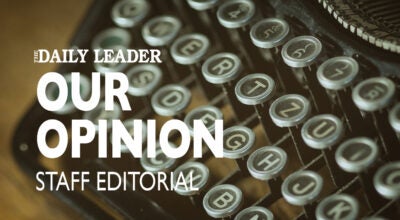‘Mockingbird’ critique not new, not unique to Mississippi
Published 10:08 pm Monday, October 16, 2017
“To Kill A Mockingbird” was recently pulled from shelves at a Biloxi school.
The book was pulled, according to the Biloxi School District, because parents complained that language in the book made them uncomfortable, according to The Sun Herald. Biloxi Superintendent Arthur McMillan went to lengths to craft a statement that neither confirmed nor denied the school district did it. School Board member Kenny Holloway, however, confirmed and explained the district’s concerns, the newspaper reported.
“There is some language in the book that makes people uncomfortable, and we can teach the same lesson with other books,” Holloway said.
That language is the N-word.
As soon as the rest of the country learned about Biloxi’s decision, the usual criticisms of Mississippi began. And most of them centered around race.
But this is not a Mississippi issue. Harper Lee’s book has been banned in many places. According to American Library Association’s “Banned and Challenged Books” list, “Mockingbird” is the No. 4 banned or challenged book. It’s bested only by “The Grapes of Wrath,” “The Catcher in the Rye,” and “The Great Gatsby.”
It was challenged in 1980 in New York, 1984 in Illinois, 1996 in Texas, 2001 in Georgia, and removed from a Canadian library in 2009.
The recent decision by Biloxi follows a long line of concerns about the book’s language.
According to bannedbooksweek.org, “Harper Lee’s great American tome stands as proof positive that the censorious impulse is alive and well in our country, even today. For some educators, the Pulitzer-prize winning book is one of the greatest texts teens can study in an American literature class. Others have called it a degrading, profane and racist work that ‘promotes white supremacy.’”
Regardless of your opinion of Lee’s work, rest assured you are not alone. Some love it, some hate it. Some feel it is inappropriate, others feel it is perfectly appropriate.
But this is not unique to Mississippi. The country has struggled with Lee’s novel since it was published, and that’s not likely to change anytime soon.


